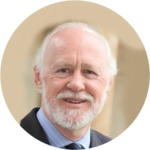The art of influencing others to achieve personal and professional outcomes has been a critical skill of business leaders since the publication of Dale Carnegie’s iconic bestseller How to Win Friends and Influence People in 1936.
The seminal guide has spawned a veritable library of self-help books and academic research papers, all seeking to break down the psychology of influence into easily replicable habits.
The power to influence is, of course, relatively simple when you have organisational authority. CEOs can influence their team through the sheer weight of their title and the power to advance or terminate a career.

Professor Victor Callan is a Professor of Management and Leadership at The University of Queensland (UQ) Business School, teaching future leaders in the UQ MBA program about the art of influencing without authority.
“The first question many younger executives ask is how they can influence the actions of their peers who have the same level of authority as them,” he said. “The second question is how they can influence up when dealing with more senior people in the organisation who hold genuine authority.”
“Each challenge requires its own approach.”
Victor believes one of the most important aspects of influencing people in your team is to create a focus on ‘shared’ leadership.
“When thinking about influencing peers and fellow team members, you need to remember that leadership is not the same as authority,” he said.
Defining shared goals that are inspirational and even motivational is also critical to influencing behaviours, he said.
“It’s important that the entire team has the opportunity to define the process for achieving collectively agreed upon important outcomes.”
Gabrielle Woodbridge is still at the beginning of her UQ MBA journey. She balances studying with being a mother to twin toddlers and maintaining a demanding job with global software giant SAP.
Gabrielle has seen first-hand how many of the traditional styles of authority-driven leadership have been sidelined during COVID and replaced with a more sophisticated approach to influencing others.
“COVID has been the great leveller,” she said. “You see people in their homes, in casual clothes with their pets and children running around, which has required a different, more egalitarian approach to leadership.
“Hierarchy and job titles don’t have anywhere near the influence they used to, and getting things done and achieving outcomes requires a much gentler, more personal approach.”
After completing a Bachelor of Arts (Cultural Studies), Gabrielle started her career as a nurse in the pharmaceutical industry before pivoting into a marketing role at big tech firm SAP.
“In my experience, you have to treat every job like it’s your own business and have a real start-up mentality,” she said. “Taking full ownership for actions and outcomes, like you’re forced to do in small business, will give you much better focus and people will respect your competence and confidence.”
Gabrielle hopes to continue building on her understanding of leadership as she moves through her MBA, particularly via the program’s popular leadership subjects.
“It’s been such an incredibly rewarding experience already,” she said. “The UQ MBA allows you a privileged opportunity to work with brilliant minds in any team setting.
“UQ has the number one worldwide ranking MBA for student quality, and I’ve certainly seen this reflected in every group assignment I’ve worked on.
“The teaching team put 110 per cent effort into everything they do, and they display modern leadership skills such as empathy, initiative, creativity and abstract thinking. As a leader, they’ve provided me with a great template to replicate with my colleagues and foster a culture of respect, innovation and diversity.”
ALSO READ: Navigating The Job Market: How UQ MBA Career Consultants Help Students Seize New Opportunities
Of course, managing colleagues at a similar level to you in an organisation is one thing; exerting influence over people more senior than you is another matter entirely and requires a more delicate approach.
Victor believes “managing upwards” starts with understanding your manager’s needs and building an influential and powerful coalition that advantages them.
This process often starts with simple consultation to seek their advice and understand what drives them.
“Do this as regularly as possible to create mutual respect and cooperation,” he said. Then consider what is most likely to influence them.
“For example, are they more influenced by reports they can review independently or by face-to-face meetings with influential colleagues? Are they highly analytical, wanting to see graphs, trend lines and data, or are they more open to the power of emotions, visions and storytelling?”
Gain the leadership skills to influence others, manage teams and lead organisations with a UQ MBA. Apply before 31 May to start study in July 2022.







